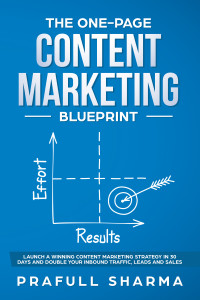B2B Manufacturers and Content Marketing: By the Numbers
The Content Marketing Institute recently released its second annual report on B2B manufacturers and content marketing approaches. After collecting and analysing data from 217 B2B manufacturing marketers from around the country, CMI found that B2B manufacturing marketers were “all over the map” when it comes to content marketing.
Take a look at the following B2B manufacturers content marketing statistics from this year’s report:
- 86% vs. 82%: These statistics represent the B2B manufacturing marketers who claimed to use content marketing in 2014, as compared with the drop to 82% in 2015. The definition of “content marketing” was modified a bit by CMI from the previous year, in order to better reflect the growth of content marketing.
- 30% 26%: When asked how effective they believed their organization to be at content marketing, 26% in 2015 expressed confidence in this area of B2B business. This number was a decrease of 4% from the year before.
- 50% vs. 20%: Half of B2B manufacturing marketers claim to have a content marketing strategy, although the strategy was undocumented. In comparison, the 20% of B2B marketers who have a documented strategy face less challenges with their company’s marketing.
- 89% vs. 47%: Goals for content marketing varied, but the top stated goal was brand awareness. At the bottom of the survey, 47% of respondents cited upselling or cross-selling as their B2B content marketing goal.
- 44% vs.7%: When asked about the anticipated change in the amount of content creation for this year, 44% said their B2B companies would create more, while 7% were planning to develop less.
- YouTube vs. Google: YouTube came in as the most effective social media platform, which remains unchanged from 2014, and the results were actually a 7% increase from the previous year. LinkedIn dropped 2% in 2015 but was at the top of the list for B2B manufacturers when it came to the most utilized social media outlet.
Changing Your B2B Content Strategy
There will be varying opinions on the reason B2B manufacturers differ so much in their approach to content strategy. Company needs differ from one to another, and keeping up with a changing business world can bring its own unique challenges. Joe Pulizzi, founder of Content Marketing Institute, points to a few areas where changes can be made in order to help B2B manufacturers see effective results in their content marketing:
- Education: Conferences, books, and webinars abound. Read reports, stay up-to-date on B2B news and trends, and consult experts in the field. Stay committed to the process of being aware of what is going on in the marketing world.
- Best practices: Best practices for driving your marketing include incorporating relevant content, understanding your customer base, and visual content. Use statistics, facts, and figures. Connect with your audience by using stories and quality messages through blogs, videos, your website, and relevant articles.
- Laser focus: What works best for your company? Document a set of 1-, 3-, and 5-year goals. Go over them regularly and meet with your team to evaluate. Where do you want your B2B company to be in 10 years? Maybe a particular method needs to be tweaked or refined. Learn to develop a focused approach to your content strategy.
- Documenting content strategy: The results of CMI’s report show that 50% of B2B manufacturing marketers surveyed have no documented content marketing strategy for their company. A documented content strategy should serve as a guide and measuring tool for the value your content offers to your organization. Not only does a documented content strategy give a focus for all team members involved, but it also serves as a reference when the focus gets hazy.
Every B2B company has its own unique challenges. The best solution is the one that works for your organization. The focus can become clearer when you implement a documented content strategy, maintain a sharp focus, and educate yourself while using the best practices.
Does your B2B company have a documented content strategy? What seems to have worked in your content marketing, and what has not worked so well?
Share This Story
One Comment
Leave A Comment
Get the latest growth ideas, strategies, and best practices delivered to your inbox.
Quick read that helps 7000+ subscribers.









Thank you for providing us with such a wonderful article about B2B Manufacturing Companies. Thanks and keep sharing.